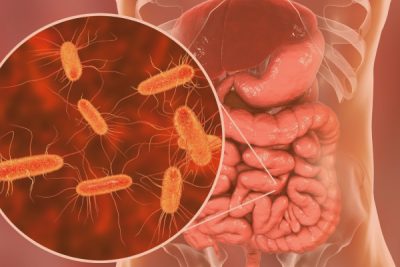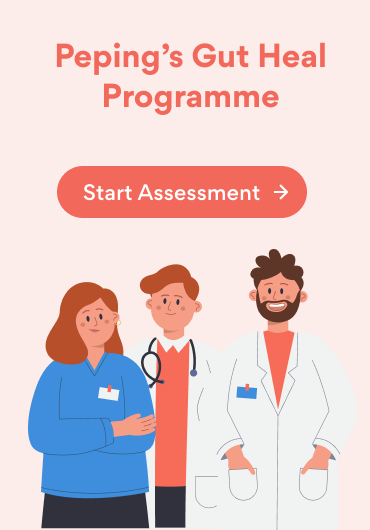The human digestive system is a complicated network of organs and activities that are critical to nutrition absorption and general health. However, in recent years, the concept of a “leaky gut” has gained popularity as a possible contributor to a variety of health problems. Leaky gut syndrome is a potential ailment that does not yet have a medical diagnosis.
In the stomach and small intestine, digestive enzymes break down nutrients in food and drink into smaller molecules that the body may utilize for energy, development, and repair. Tight gaps in the gut walls enable water and nutrients to pass through while keeping dangerous particles out. The pace at which this occurs is referred to as intestinal permeability (IP).
A leaky gut, also known as increased intestinal permeability, happens when the lining of the digestive tract becomes weakened, allowing more than just nutrients and water through, i.e., they “leak”.
Leaky gut syndrome is a widespread hypothetical condition that affects a large proportion of the population. A leaky gut permits microbial compounds, potentially toxic ones, to move from the gut into the bloodstream.
Let us explore the signs and symptoms of a leaky gut and its treatments and cures.
SIGNS AND SYMPTOMS:
- Gastrointestinal Discomfort:
- Chronic bloating and gas from fermentation due to bacterial overgrowth in the gut
- Burning sensation or ulceration in the gut
- Irregular bowel movements (constipation or diarrhea)
- Painful indigestion due to the loss of intestinal mucosa
- Abdominal cramps or pain
- Gastrointestinal inflammation from radiation therapy
- Lack of energy, even after sufficient rest, due to a diminished capacity to extract energy from the diet
- Persistent fatigue
- Development of new food sensitivities
- Inability to tolerate particular foods, leading to allergic-like reactions, discomfort, and asthmatic symptoms
- Skin conditions:
Skin conditions like psoriasis, eczema, acne, or rosacea
- Autoimmune conditions affecting the gastrointestinal (GI) system:
- Leaky gut is associated with celiac disease and inflammatory bowel disease (IBD) that cause chronic gut inflammation, leading to erosion of the intestinal protective barrier over time.
- Heightened susceptibility to or exacerbation of pre-existing autoimmune disorders such as Hashimoto’s thyroiditis, Rheumatoid arthritis, psoriasis, and lupus.
- Joint Pain:
- Joint inflammation and pain
- Worsening of conditions such as rheumatoid arthritis
Toxins from the gut can enter into the bloodstream causing inflammation. Many of these conditions, including metabolic disorders such as arthritis, obesity, diabetes, asthma, fibromyalgia, and chronic fatigue syndrome, may be caused by persistent low-grade inflammation.
- Nutritional Deficiencies:
- Difficulties related to nutrient absorption, resulting in nutritional deficiencies
- Unexplained loss of weight or difficulty maintaining/gaining weight
- Anxiety and depression
- Irritability and mood swings
- Attention deficit hyperactivity disorder (ADHD) and attention deficit disorder (ADD)
- Brain Fog:
- Headaches
- Concentration difficulties
- Mental fatigue and memory problems
- Frequent diseases or infections
- Difficulty recovering from diseases
- Other symptoms:
- Hormonal imbalances such as PMS (Premenstrual Syndrome) and PCOS (Polycystic Ovary Syndrome)
- Fungal infections such as candidiasis
- Facial swelling on exposure to severe smells
Causes of a Leaky Gut
The intestine lining is fortified with several layers of defense. While it can be momentarily wounded, it is intended to continually heal and replace itself. It takes a strong attack to wear it down sufficiently to pierce the lining. This generally refers to a chronic condition, long-term drug or alcohol misuse, or radiation therapy.
According to the leaky gut syndrome, anything that injures the gut lining can lead to intestinal permeability if the harm is severe enough. As a result, the following causes may progressively wear down your gut lining until it becomes permeable:
- Stress:
Chronic stress can influence the gut-brain-gut axis, can weaken the immune system, and inhibit the body’s ability to eliminate bad or pathogenic bacteria, leading to inflammation and a leaky gut.
- Diet:
- Processed food intake
- Excessive consumption of refined carbohydrates and sugar
- Food allergies that cause an immune response to specific foods
- Lack of beneficial or good bacteria
- Overgrowth of pathogenic or bad bacteria
- Prolonged usage of non-steroidal anti-inflammatory drugs (NSAIDs) such as ibuprofen and aspirin
- Antibiotics that can disrupt gut microbial balance
Gut bacteria help with digestion, protect the gut wall, and boost immunological function. Imbalanced gut microbiota can affect intestinal health. An increase in bad bacteria and/or decrease in good bacteria may activate the body’s immunological response, resulting in inflammation and increased gut permeability.
- Other factors:
- Inadequate physical exercise
- Exposure to pollutants and toxins
- Diseases that cause intestinal injury, such as HIV/AIDS.
Final thoughts
Leaky gut syndrome (LGS) is an intestinal disorder where the intestinal walls fail, allowing germs and poisons to enter the bloodstream. It affects both physical and mental health and requires diagnosis and treatment. Symptoms include chronic constipation, diarrhea, nutritional deficiencies, bloating, headaches, fatigue, concentration difficulties, confusion, and skin problems.
Risk factors include alcohol intake, poor nutrition, infections, autoimmune disorders, diabetes, and stress. To improve gut health, individuals should adopt a holistic strategy including dietary adjustments, stress management, and lifestyle changes. Consultation with a healthcare expert is recommended for specific guidance and treatment.













